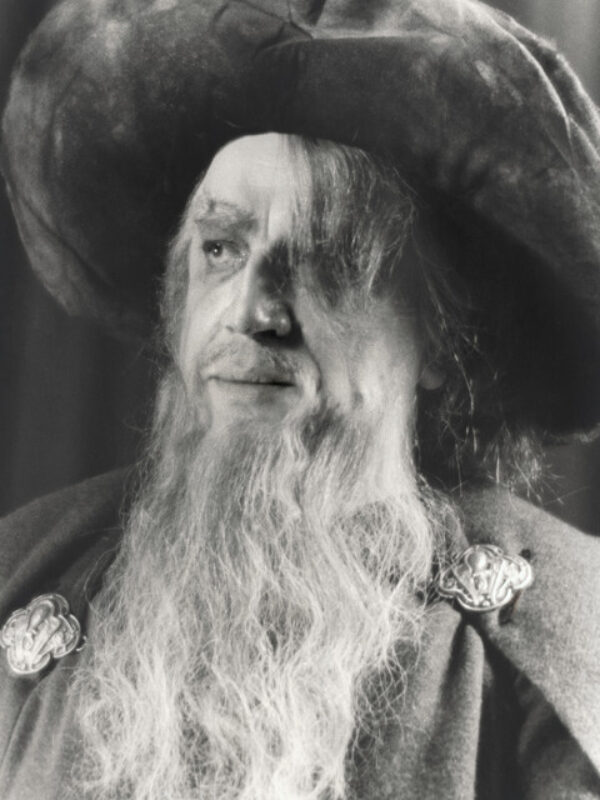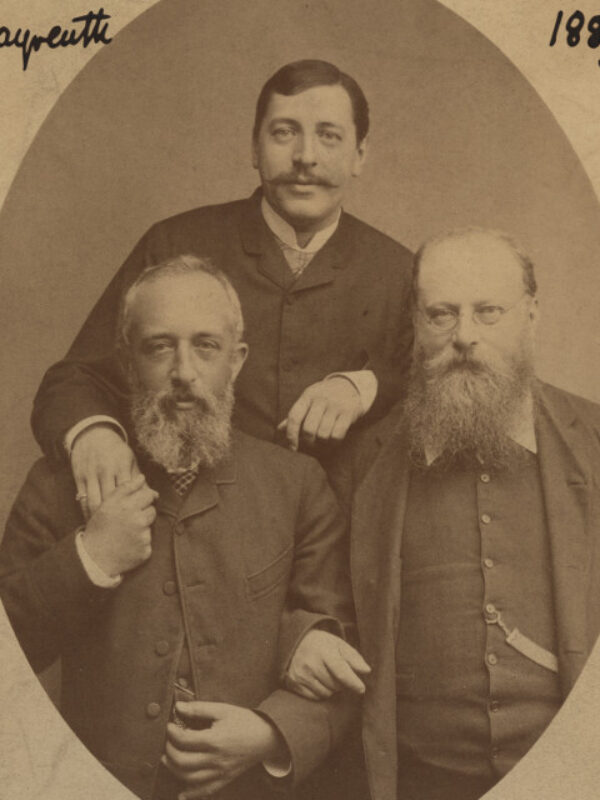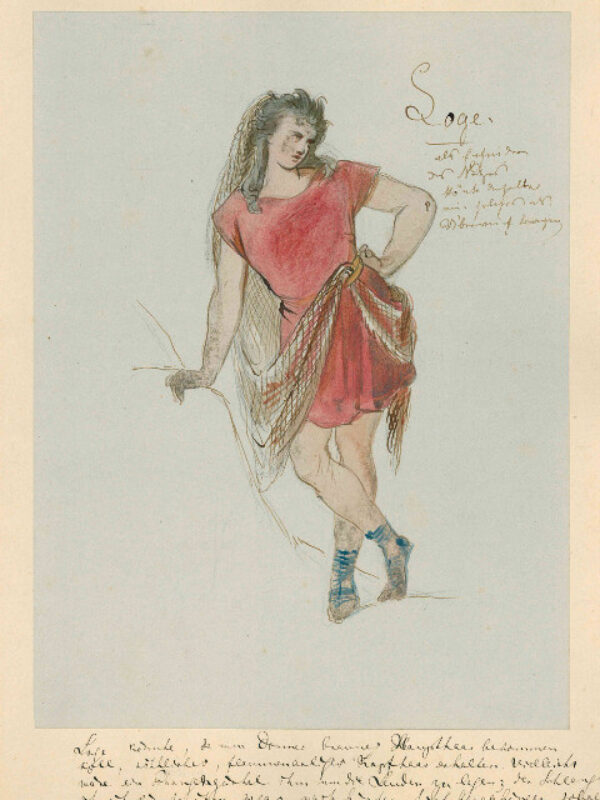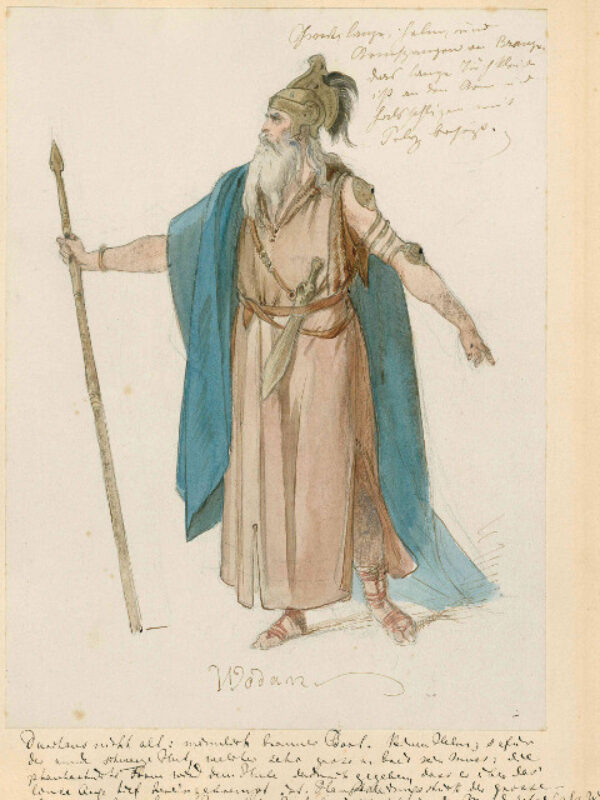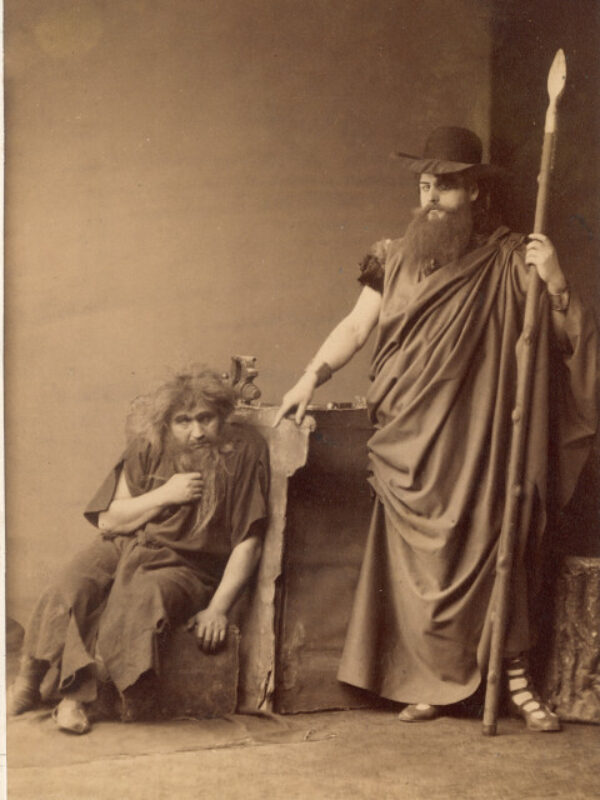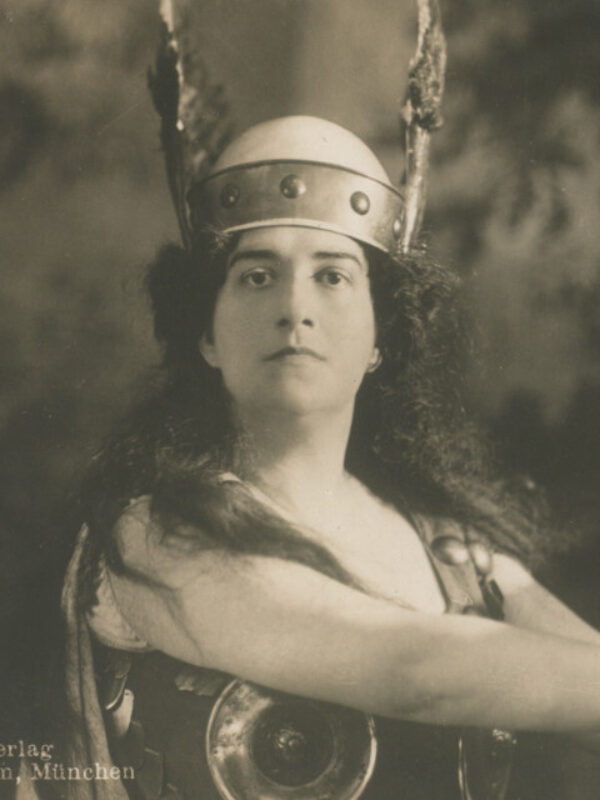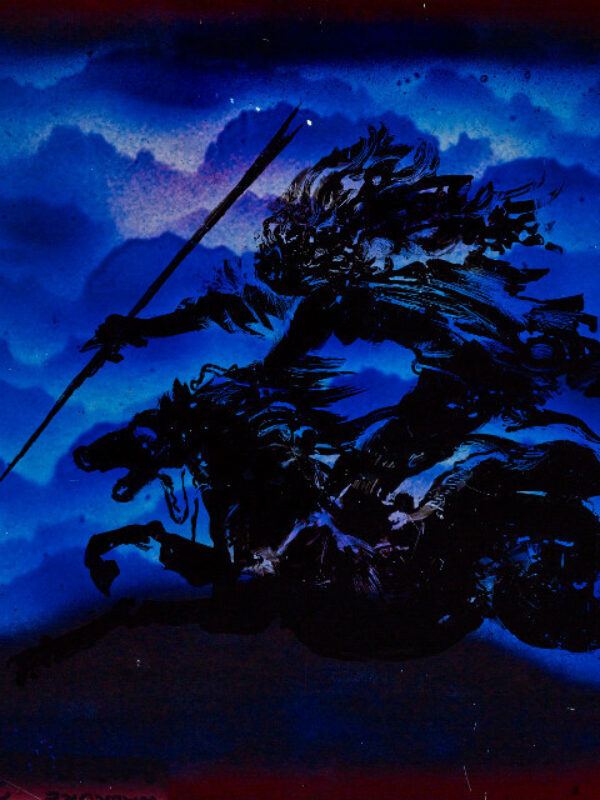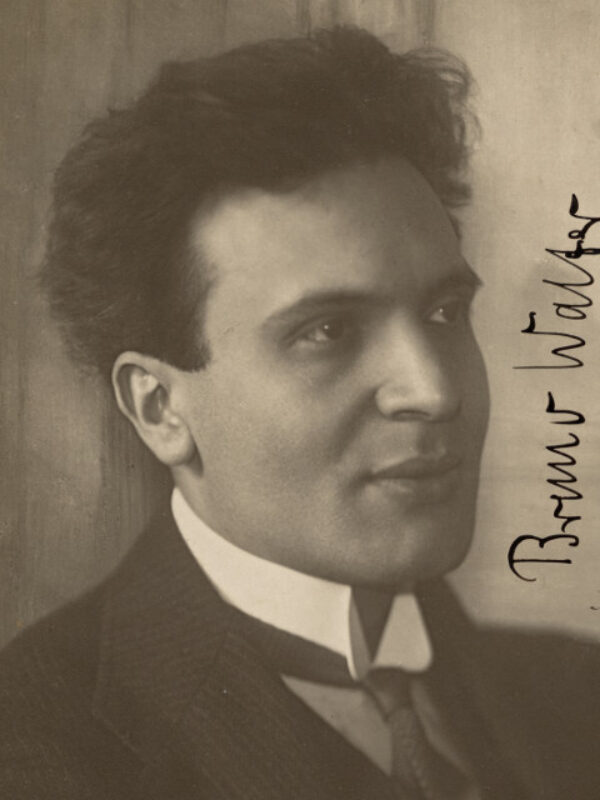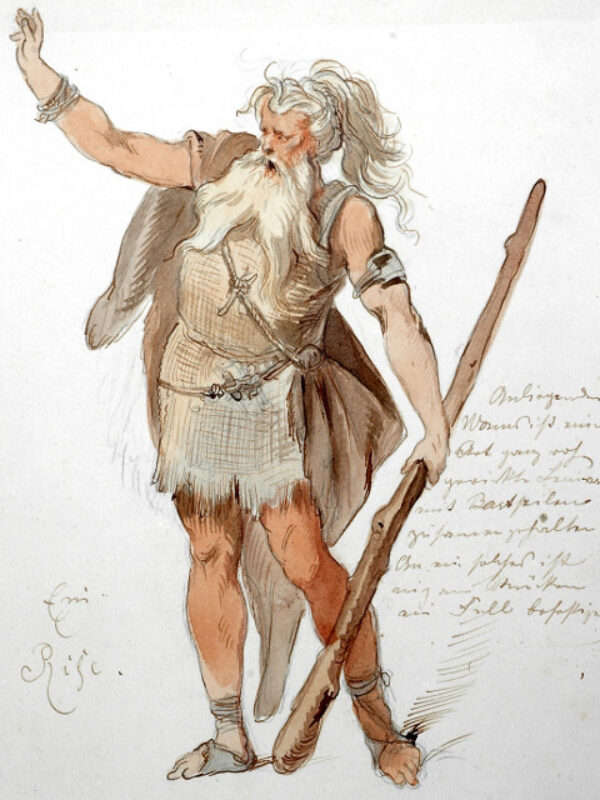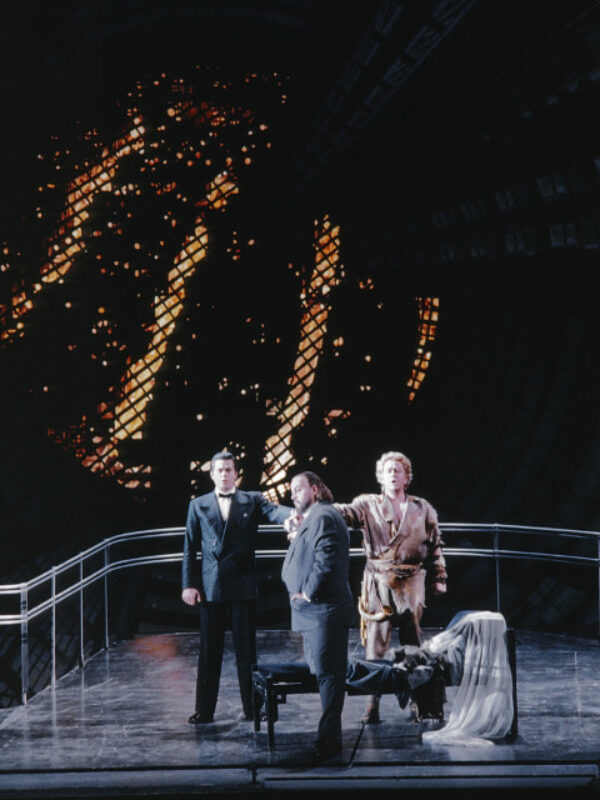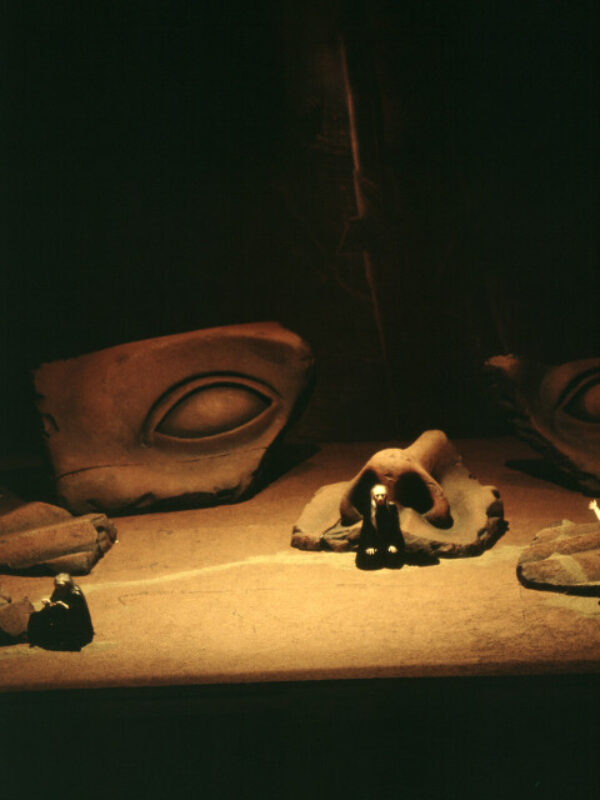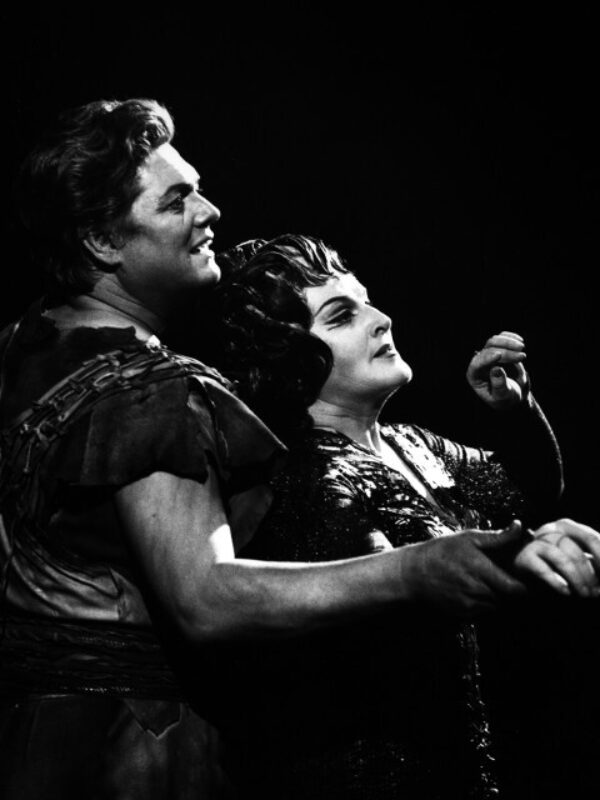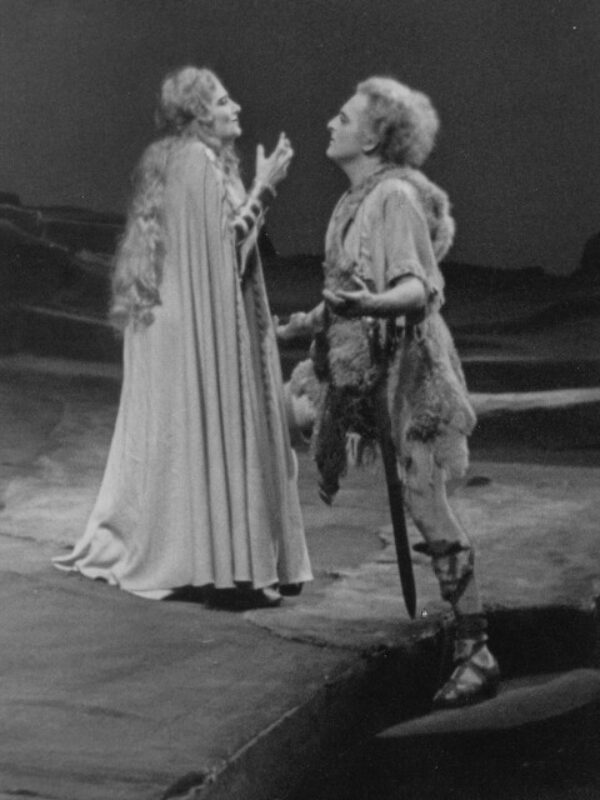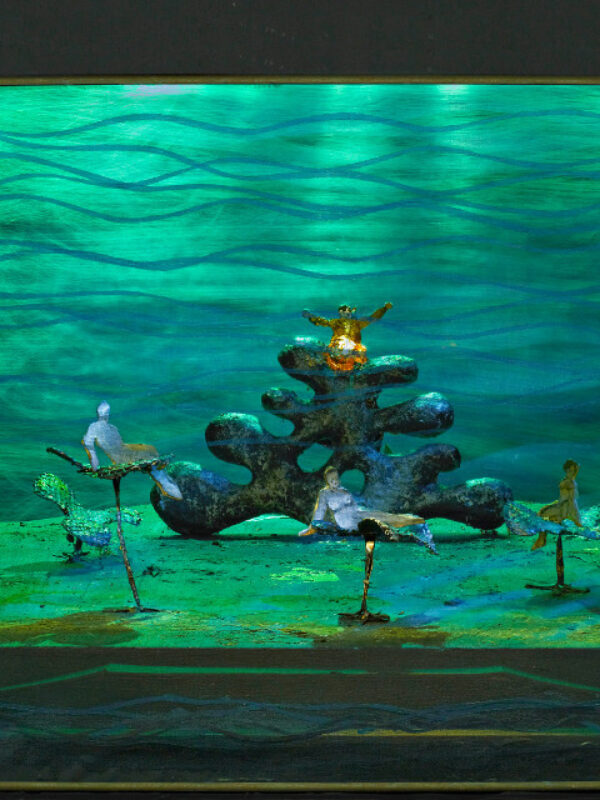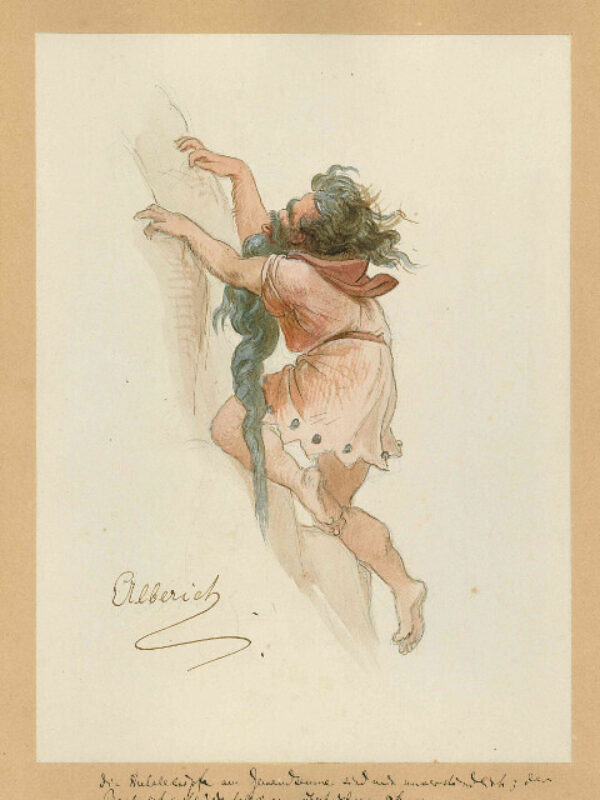May 17, 2013 - Oct 20, 2013
From the World: Beginning and End
"Der Ring des Nibelungen" in Munich
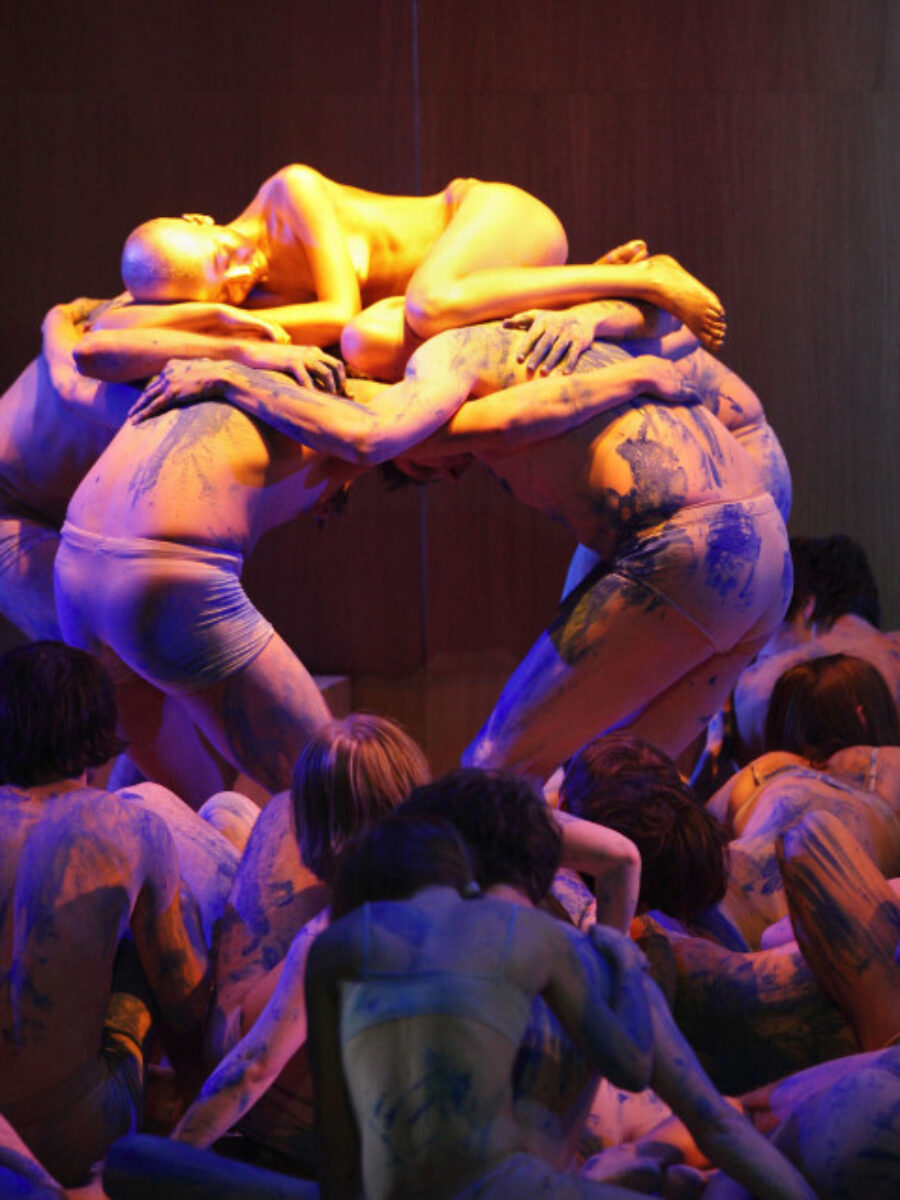
On the occasion of the 200th birthday of the "opera revolutionary" Richard Wagner, the exhibition focuses on the more than 140-year performance history of this mammoth work, the first two parts of which, Das Rheingold (1869) and Die Walküre (1870), were premiered at the instigation of King Ludwig II against the will of their creator. In 1878, the first complete performance of the Nibelungen work outside Bayreuth took place in Munich.
The exhibition first highlights Wagner's intense engagement with the Nibelungen myth and its earliest sources. He worked on his opus about the beginning and the end of the world—which Wagner referred to as the "full and lush main work" of his life—for 14 years, after taking longer breaks. The realization of the performance in connection with his festival idea, which envisioned the construction of a theater specifically designed for the Ring with an amphitheater-like seating arrangement, became a life goal for him.
Stage design and costume sketches, set models, production and role photographs trace the history of the Munich productions of Der Ring des Nibelungen to the present day. Digitalized historical photos in film loops illustrate the slow evolution of the stage design in a time-lapse effect. The long adherence to the imagery of traditional productions is evident until the second half of the 20th century, when new conceptual and stage aesthetic breakthroughs emerge. External influences are highlighted by looking at style-defining productions, such as the stage reform ideas of Adolphe Appia at the end of the 19th century, the stage designs of Alfred Roller in Vienna at the beginning of the 20th century, and the new productions by Wieland Wagner, Patrice Chéreau, and Harry Kupfer in Bayreuth.
In film excerpts—supplemented by numerous interviews—the productions of Munich directors Günther Rennert, Nikolaus Lehnhoff, Herbert Wernicke, David Alden, and Andreas Kriegenburg can be traced. The exhibition also remembers many famous singers and conductors associated with the Munich Ring.
